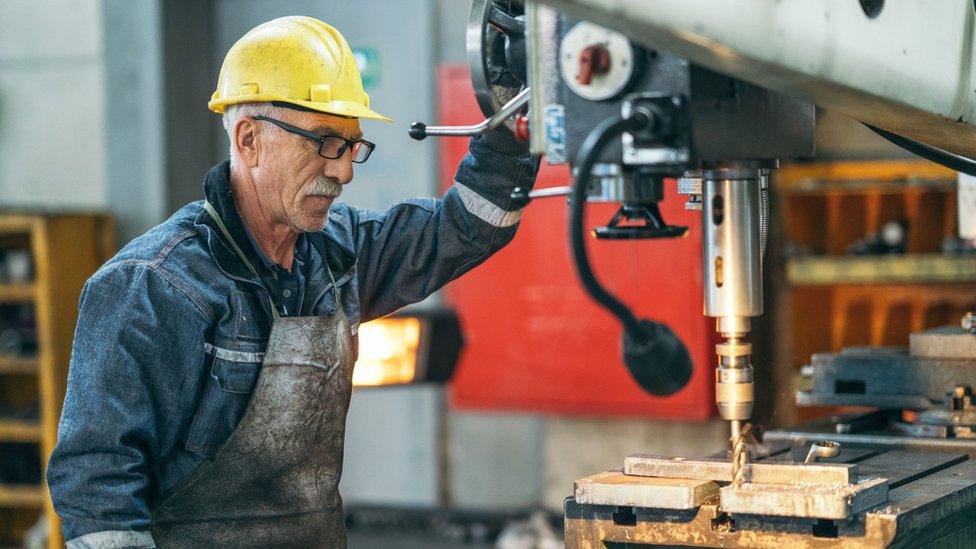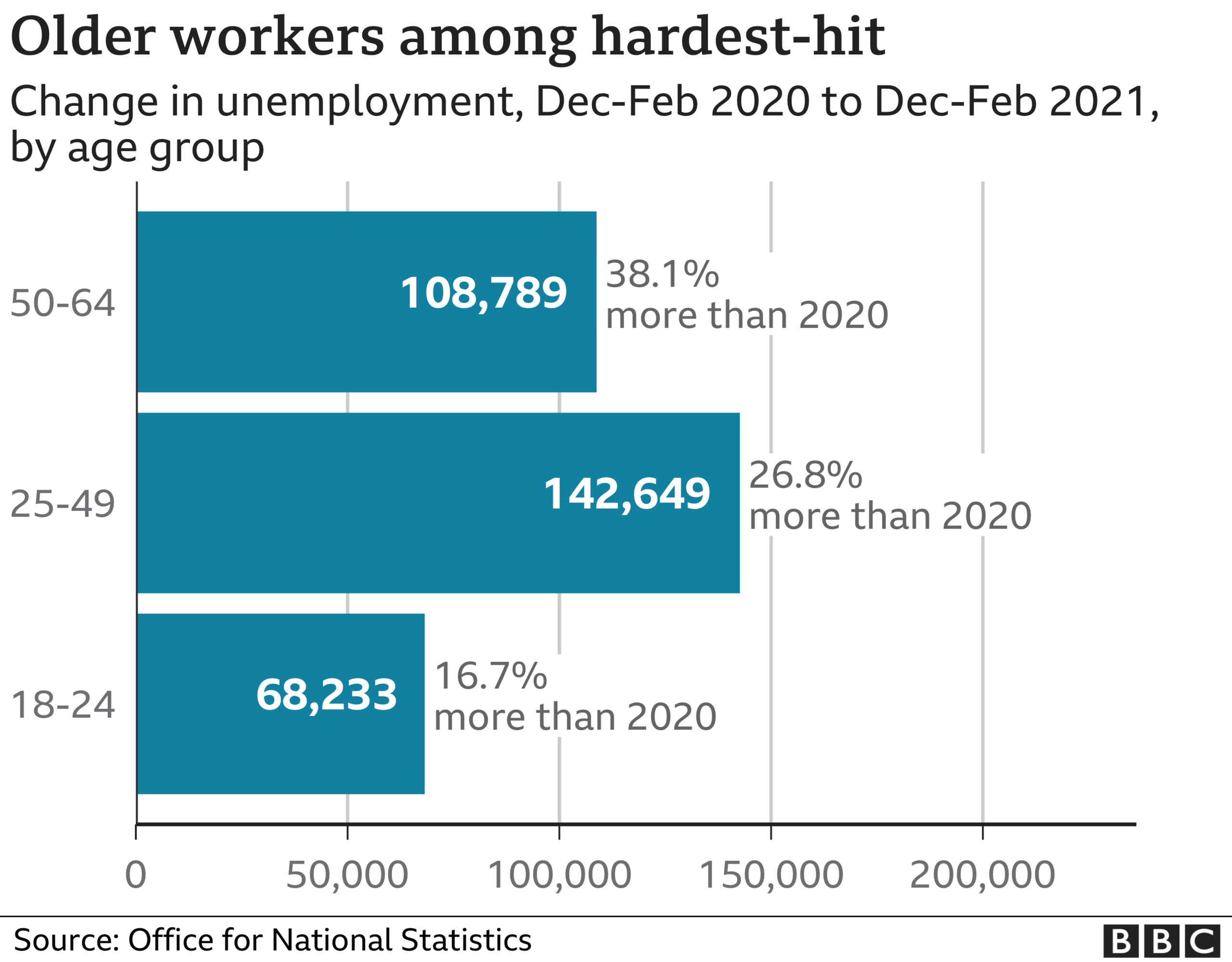Older workers 'see biggest jobs fall since 1980s'
- Published
- comments

The pandemic has led to the biggest annual fall in employment for older workers since the 1980s, according to a new report.
The decline in the employment rate for the over-50s has been twice as big as for those aged between 25 and 49.
The Resolution Foundation also found that after losing work, older workers take the longest to return.
It called on the government to tailor retraining opportunities to over-50s.
The report suggests that the Covid-19 crisis has created a "U-shaped" employment shock, with older and younger workers affected more than those who are middle-aged.
Although workers aged under 25 have seen by far the largest fall in employment in the past year, the fall in employment among those aged over 50 has been twice as big as those aged between 25 and 49, a 1.4 percentage point declined compared to 0.7 percentage point dip.
Latest stats from the ONS show there were 109,000 more unemployed workers aged 50-64 between December and February 2021 than the same period a year before, the Resolution Foundation says.
The Resolution Foundation found that fewer than two in three managed to find return to work within six months.
And when older workers do return to the workplace, they face the highest income hit of all age groups, it said.

Typical hourly earnings fell by 9.5%, compared with what they were earning before being made unemployed.
Kathleen Henehan, senior policy analyst at the Resolution Foundation, told the BBC: "One of the more worrying things about losing your job when you're older is that on average, it takes a lot longer to find a job.
"A lot of that will be down to the fact you have more skills and experience, as well as more financial commitments you need to meet.
"When [older workers] do find that job - it tends to pay a lot less than the previous job... with big implications for retirement savings and how long they may need to work."

'It's finding a way in that's difficult'
"Initially when we opened years ago, it was an incredibly successful store, with huge turnover and the footfall was great. It was a really exciting time to be in retail," says Mandy Reynolds.
The 51-year-old from Stoke-on-Trent was a store manager at one of Arcadia's Outfit stores, before the group collapsed into administration.

Mandy Reynolds was a store manager at one of Arcadia's Outfit stores, before the group collapsed into administration
"It became more obvious, as there was a switch to online shopping, the struggles that the business was up against.
"When we went into administration at the end of the last lockdown in November, we were under the impression we would continue to trade."
But Mandy lost her job in February after 13 years with the group.
Having worked in retail for a long time, she was confident in her experience and skills - but has found the job market tough to crack.
"The job market was a bit stagnant because of lockdown, but there are a lot of jobs out there and I'm really struggling to find one.
"I feel the experience and knowledge [older workers] have can be transitioned to a different role, but it's trying to convince other industries and people that that is the case on a piece of paper.
"The opportunities that are out there are plenty - it's just finding a way in and that's what's difficult."
She has applied for at least 30 jobs, on top of learning new online interview skills and updating her CV.
But the mother-of-four is feeling optimistic: "This has given me an amazing opportunity to stand back and consider what I have to offer, what I'd like to do... maybe stretch myself a bit and look for work that would be satisfying in a different way.
"I've still got more to do."

Nye Cominetti, senior economist at the Resolution Foundation, added: "In the face of the current crisis, unemployed older workers may have to either work for longer to make up for these negative employment effects, or retire earlier than they planned to.
"The government must ensure that older workers are not forgotten in the design and implementation of schemes created in the wake of the crisis to help people back into work."
Alex Beer, head of the welfare programme at the Nuffield Foundation, which supported the report, also urged the government to offer tailored support to older workers, such as opportunities to retrain or extra support to find new jobs.
A spokesman for the Department for Work and Pensions said: "Older workers are a huge asset to this country, and heading into the pandemic a record number of over 50s were in work.
"As we build back better we're helping hundreds of thousands of older workers to retrain, build new skills and get back into work through our Plan for Jobs and our 50 Plus: Choices Offer."
- Published18 February 2021

- Published14 April 2021
